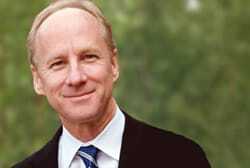We are encouraged by President Obama’s commitment to mitigate the effects of climate change by supporting greater development and use of alternative energy sources and through innovative approaches to reducing the energy consumption of buildings. Reducing carbon emissions and reinforcing the environmental sustainability of our urban areas are key focus areas for the Urban Land Institute.
The impacts of climate change are playing, and will continue to play, a greater role in shaping urban development in the years ahead—in terms of what is built, where and how it is built, and how it is insured and financed. In this regard, the real estate industry has a key role to play in working with all levels of government to implement strategies that better protect both the built and natural environments. ULI is at the forefront of this issue with our Greenprint Center for Building Performance, whose members are addressing climate change with development practices that lower the carbon emissions and energy consumption of buildings. Our organization is a global leader in the area of energy-efficient design and development practices, and we are working to form partnerships with both the private and public sectors to help advance innovative energy conservation efforts.
In the real estate world, climate change is one of several forces—equal in significance to economic, demographic, and societal changes—that are compelling us to explore different approaches to development in the 21st century. Development should be viewed as an opportunity to reduce risk in the future, enhance livability, restore natural resources, and increase community resilience. We look forward to contributing solutions that result in communities that are both safe and livable for generations to come.
We are equally encouraged by the support expressed by President Obama for congressional passage of federal transportation infrastructure legislation and his commitment to improve the efficiency of the federal permitting process for infrastructure projects. This sends an important signal that the federal government recognizes the importance of transportation investments—including roads as well as transit systems—as a way to create jobs and ensure that U.S. cities are globally competitive in the 21st century.
In recent decades, America has become more of a follower than a world leader when it comes to infrastructure. This investment shortfall has been well documented in the Infrastructure report series published annually by ULI and Ernst & Young. We must do better, and President Obama’s commitment to infrastructure investments will help us do so.
Ours is an urban nation. We have entered a new era that will require new approaches to infrastructure, land use, and energy efficiency. Together, these approaches will result in communities that are more livable, economically prosperous, and environmentally sustainable.






